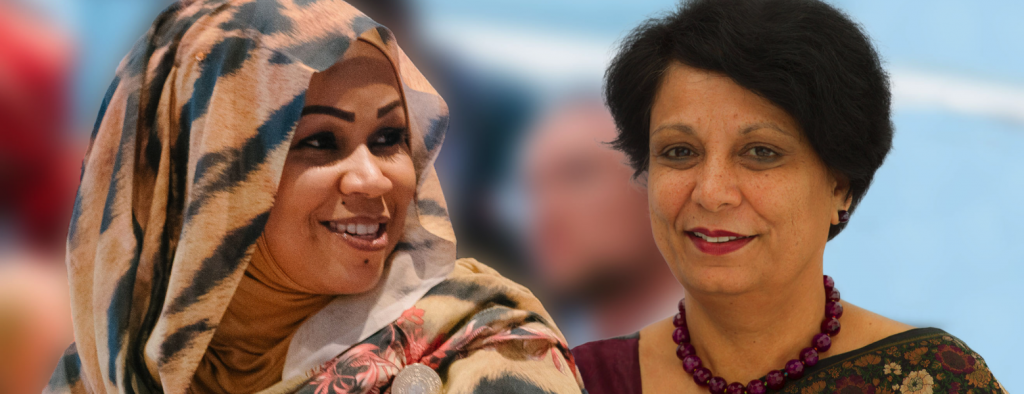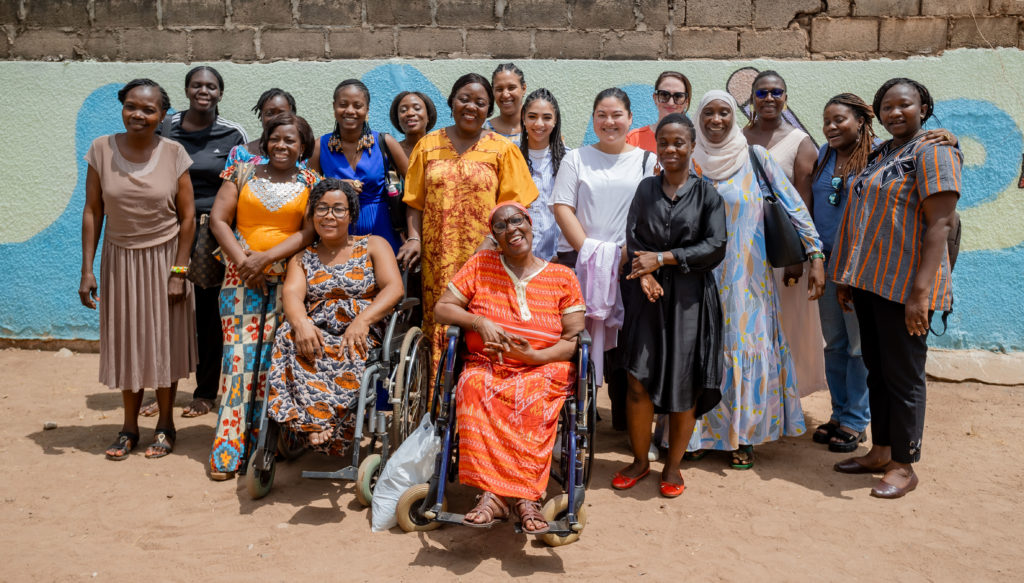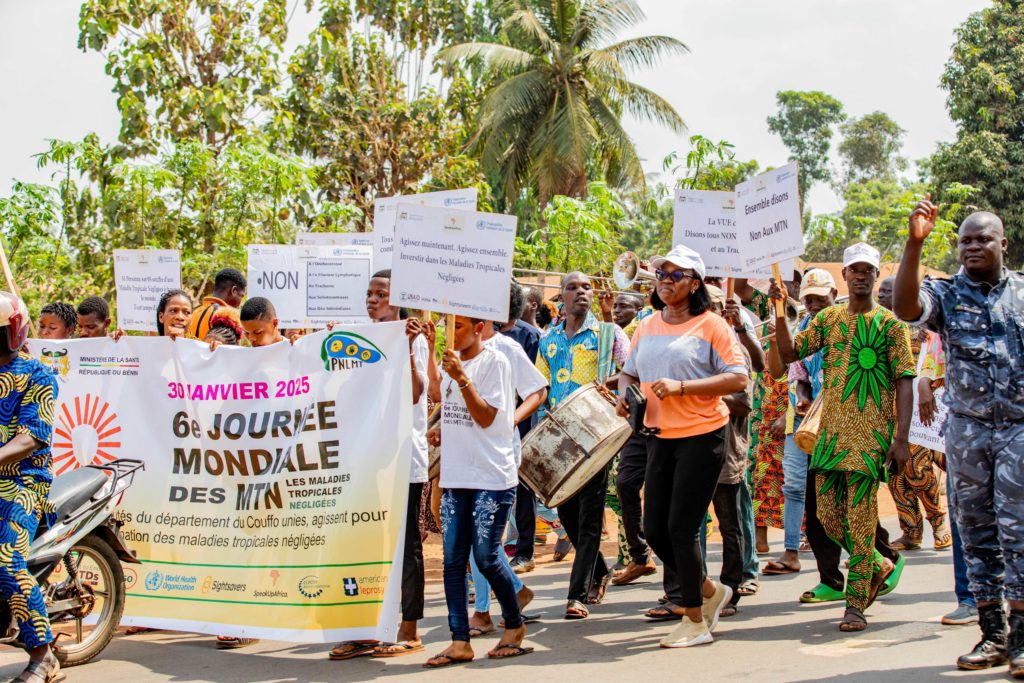Taking control of Chad’s immunisation agenda: it’s our time

By Her Excellency Hinda Déby Itno, First Lady of Chad and Anuradha Gupta, Deputy CEO, Gavi, the Vaccine Alliance
Globally, the deaths of over 600,000 children under the age of five each year are due to vaccine-preventable diseases, and a third of these deaths occur in Africa. Currently, Chad is counted among the ten countries that account for over 70% of under-immunised children in Gavi-supported countries. In our roles as First Lady of Chad and Deputy CEO of Gavi, we are therefore on a mission to raise immunisation rates in Chad to ensure a positive future for the nation. Together, we have now committed to using our voices and platforms to increase funding for immunisation in the region and improve the health and prospects for children across the continent.
This is particularly important in Chad, where almost half (47%) of Chadians are under the age of 15. With such a large population of young people to account for, we must invest in this generation of young people, who of course are our soon-to-be leaders, educators, and changemakers. Improving access to routine immunisation programme is not only an investment in the health of our children, but the well-being of Chad as a whole.
On January 31, 2017, African heads of state made a historic commitment to advance universal immunisation access by 2020 with the adoption of the Addis Ababa Declaration of Immunisation, making it a continent-wide priority to improve vaccination rates. Across Africa, the average immunisation rate is 75% for Gav-supported nations, so countries like Chad must do their part to improve vaccination rates to keep up with the rest of the continent.
Presently, routine immunisation prevents 2 to 3 million deaths around the world each year. Worldwide, the World Health Organization estimates that 19.4 million infants still do not benefit from basic vaccines for diseases which often lead to premature deaths. Africa as a whole has made vast improvements in the past decades through routine vaccination, but there is more work to be done.
Besides the loss of life due to preventable disease, infectious diseases such as rotavirus, measles, rubella, and pneumococcal diseases collectively cost the African continent USD $13 billion because of the rates of occurrence and mortality. But, according to a John Hopkins University Study, for every U.S. dollar invested in immunisations, an average of USD $21 was saved in healthcare costs, lost wages, and lost productivity. Even more broadly, the benefits received from every dollar spent on routine vaccinations provided a USD $54 return on investment as recipients live longer, healthier lives.
Vaccines are not only crucial for the well-being of our children, but for the health of young women as well. One woman dies of cervical cancer every two minutes, and around 80% of cervical cancer deaths in low- and middle-income countries. The introduction of the HPV vaccine has altered the outlook of an HPV diagnosis and can prevent up to 90% of all cervical cancer cases. As we push for increased immunisation rates, we must remember the health of young women, too.
It is clear from our experiences that leaders who do take responsibility for the health of their citizens will be the first to reap the rewards. Immunisation is the most cost-effective intervention for preventing diseases which cause death, illness and reduce productivity in Africa and must therefore be at the top of the agenda for any leader. Copying other countries success can only take us so far, however, so taking the time to understand our own countries’ challenges and tailoring our national response to fit the needs of our citizens will be essential to making a real difference.
In 2013, Chad’s routine immunisation rate for children during their first year of life was reported at a dismal 5%. Now, 22% of Children have received their required vaccines.There is still considerable room for improvement, but we are proud of the strides that have been made so far and Chad is headed in the right direction by taking ownership of the immunisation agenda to better tailor immunisation programmes to Chadian citizens. Since 2013, this has included working with village leaders and community health workers to identify children who need these important vaccines and developing microplanning strategies which enable us to allocate resources more effectively within each district. Progress has begun to be seen working in partnership with the Ministry for Livestock on a mixed vaccination campaign. This multisectoral approach has already helped reach 3,616 children aged 0-11 months with the one dose of the 5-in-1 pentavalent vaccine and 200 with all three required doses, and a further 1,600 infants for measles last year, as well as more than 10,000 infants aged 1-5 with the vaccine for polio.
To considerably increase the immunisation coverage rate in Chad and across Africa, we now need commitment from every level of society to make our collective investments work harder. Country leaders, organisations like Gavi, and ministries of health are responsible for improving access to life-saving vaccines, however individuals, families, and caretakers all have an important role. We urge parents across the country to understand the risks associated with not vaccinating young children and take accountability for their family’s health.
Through Gavi’s support, 15 countries have begun to fully self-fund their vaccination programmes, and by 2020, that list will have grown to 18 nations by the end of 2020. In the past few decades Burkina Faso has increased its immunisation rate for three doses of a diphtheria-tetanus-pertussis-containing vaccine to 91%, proving that success is possible in Africa. Now, we must take inspiration from these countries’ successes as we continue to intensify our efforts towards improving vaccination rates and ensuring a healthy future for our children.


